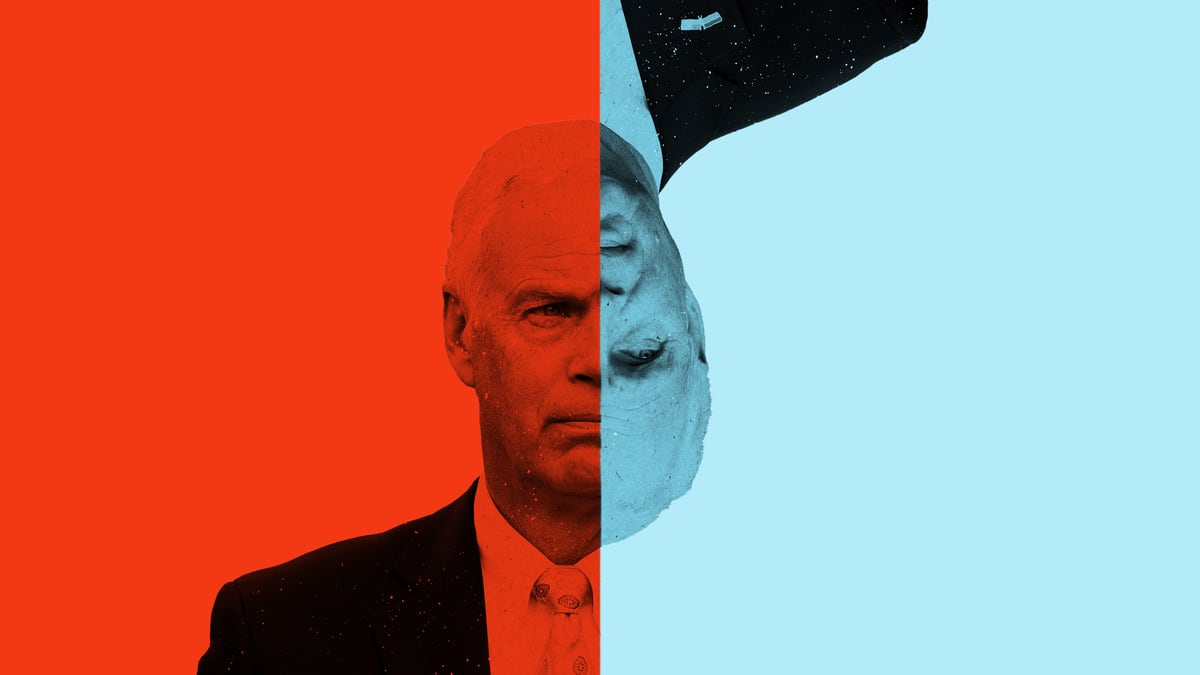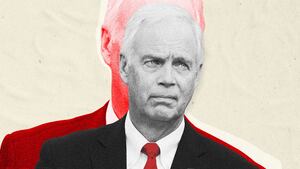For months, Wisconsin Lieutenant Governor Mandela Barnes looked like a runaway candidate for the Democratic Senate nomination in the state, which would pit him against Sen. Ron Johnson (R) in November.
A progressive star who’d already won a statewide election, Barnes has racked up endorsements from Majority Whip Jim Clyburn (SC), Sen. Cory Booker (NJ), Sen. Elizabeth Warren (MA) and more since announcing his candidacy in July 2021.
He’s the state’s first Black lieutenant governor, would be the state’s first Black senator, and could be one of the youngest members of the Senate—all factors that traditionally drive excitement for candidates among Democrats.
Although he originally entered an already buzzing field of Senate hopefuls, he had the benefit of name recognition and popularity among the state-party’s base.
But as the Aug. 9 primary creeps closer, Barnes’ Democratic primary opponents are increasingly on his tail, none more than Milwaukee Bucks executive Alex Lasry—and his money.
Lasry, who is the son of billionaire and Bucks co-owner Marc Lasry, had been running for months before Barnes hopped in the race. He’d positioned himself as being focused on the economy and a pro-labor candidate. Yet even around the turn of the new year, he was trailing Barnes by double digits.
A Data for Progress poll in December had Barnes at 39 percent of the vote share and Lasry at 16 percent. A February Marquette poll showed Barnes at 23 percent while Lasry was at 13 percent.
But in the last three months, Lasry’s been on a spending blitz. Last quarter alone he pumped $6.5 million of his own money toward his campaign, bringing his total self-lending to $12.3 million, which has afforded him a monsoon of advertising and paid communications at a vital time in the race.
“The laws of political gravity still apply,” said Wisconsin Democratic strategist Joe Zepecki, who added that by blanketing the airways, Lasry has been able to bring in support from undecided voters in particular. A June Marquette poll found that Barnes had 25 percent of support in the Democratic primary while Lasry had 21 percent. Thirty-six percent remained undecided and the remainder was split among other candidates.
Barnes’ campaign in the second quarter brought in $2.1 million—a still considerable total, but a fraction of what Lasry’s been able to pull from his own reserves.
The Lasry campaign, for their part, credit his rise in the polls to more substantive matters. They said his positions on key Democratic issues are driving interest—and that Democrats are eager to nominate someone who they believe can unseat Johnson in November.
“Alex has been running as a ‘Make it America’ Democrat and has a proven track record of delivering real results for Wisconsin—including creating 10,000 good union jobs and paying at least a $15 minimum wage with a union,” said Lasry campaign spokesperson Christina Freundlich. “His message on fighting inflation and putting money back in working people’s pockets is why he has climbed to a statistical tie in polls and has such strong labor support from across the state.”
Democratic strategists and Wisconsin politicos don’t dismiss that Lasry is managing to resonate with the voting base. But those who spoke with The Daily Beast noted that money is an undeniable factor in his growing competitiveness.
Zepecki told The Daily Beast he suspects that even amid the massive spending by Lasry’s campaign, Barnes, who’s been crowdfunding his candidacy, will still manage to eke out a win. “Barnes is still the frontrunner and there’s more pressure on him than there’s been at any other point in the race,” he said.
“Despite being massively outspent to the tune of $12 million, Mandela Barnes is Wisconsin voters’ clear choice to take on Ron Johnson in November because of his working class experience and his track record of fighting for working families,” said Maddy McDaniel, a spokesperson for Barnes’ campaign. “In fact, Mandela’s lead actually increased in the latest polling even though he has been outspent 8:1—proving once again that unlimited funds can’t stack up against Mandela’s authenticity and credibility in Wisconsin.”
Anthony Chergosky, a political science professor at the University of Wisconsin—La Crosse, told The Daily Beast it’s not necessarily surprising that the race became more competitive over time. He said the generational turnover in the Wisconsin Democratic Party in recent years meant that even statewide lawmakers like Barnes are still relatively new to the political scene.
For Barnes, that meant the first-term lieutenant governor had room to grow his name recognition and popularity, which Chergosky said was lower outside of political junkie or activist circles. And, Chergosky added, while Barnes was able to establish popularity among the Democratic base, that brand-building can only go so far in the limited time a Senate run provides.
But, that turnover allowed Lasry an opening, too. “He could basically come out of nowhere, dump a load of cash… and basically become one of the frontrunners,” Chergosky said.
The race has remained relatively positive between Democrats.
At the only televised Democratic primary debate on Sunday, Barnes and Lasry remained virtually untouched by their three fellow opponents on stage, Tom Nelson, Outagamie County executive state treasurer Sarah Godlewski, and Millennial Action Project founder Steven Olikara. Three other candidates are also running but didn’t qualify for the debate.
Ahead of the primary, there’s been an overarching question as to who among the candidates is best set to defeat Johnson in November. Each of the candidates’ closing statements on the debate stage Sunday night namechecked the incumbent senator, which is “exactly where the focus needs to be,” said Zepecki.
Barnes called himself the “strongest candidate to beat Ron Johnson.” Lasry said he doesn’t want to see his daughter grow up in “Ron Johnson’s Wisconsin.” Nelson said “the only thing that matters is who can beat Ron Johnson.” Godlewski said beating Johnson is “the No. 1 priority.”
The Johnson campaign did not return a request for comment.
Wisconsin Democratic strategist Scot Ross cautioned that he doesn’t believe the argument over who is best to beat Johnson will actually resonate with voters, calling it “A to C logic.” He thinks voters are more concerned about candidates' platforms and what they individually have to offer.
But as Barnes’ competitors catch up, the argument remains a central part of his campaign.
“I’m not telling you it’s going to be easy… What I am here to tell you is that with your help, I promise you, we will beat Ron Johnson” Barnes said on the debate stage.








